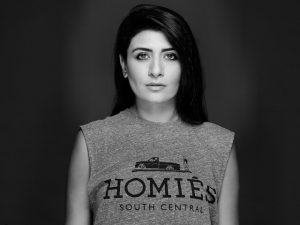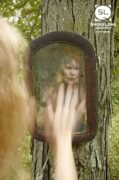I am very intrigued by the title of this story. How did you come about it? Do you see Oliver’s life dripping out of its cheesecloth, so to speak, or is the allusion more to Ian and his life being condensed to its remnants?
I found the title after a couple drafts, while the word “dripping” was still stuck in my head alongside scenes of its end. When I think of what flows—literally—in the story, I imagine the words tumbling out of Oliver’s mouth when he speaks to the wife, which I can relate to. My favorite writing comes out of these stream of consciousness sessions. I really wanted to capture that idea of fluidity, of words or moments, but I also wanted to encapsulate this idea that you mention about Ian’s life being distilled. His moments have ended, and what remains are the curds, these discrete memories of his life, slowly cementing.
The story does a nice job of showing how lives, even seemingly parallel ones, can intersect and then become affected by the other. Was that an idea present at the beginning stages of the story? Could you talk a bit about how it developed?
I think it’s just the way I’ve experienced the world, growing up in rural Michigan and then moving to Ann Arbor, which is still small enough to run into people you know. I go to our farmer’s market a lot and when I see the same vendors over and over I always wonder if they recognize me. Probably not, right? But the worst is when you chat with them about their business but can’t buy anything that day. It makes me anxious about going the next week and knowing that I don’t have it in me to reject them twice. So this story started as a “worst-case scenario” in that exact context—what would happen if I scaled up the intimacy? How would someone try to remain at arm’s length in this world where everyone knows (and/or has dated) everyone else?
Oliver does a lot of observing in this story without the reader being able to see too much of him. Even the dough he prepares in the morning is “like a window.” How did you envision him as a character and did you find him changing through versions of the draft?
Oliver was somehow even less active when I first drafted this story; it was basically just him being marginally affected by the death of this person he didn’t know very well. The entire ending with his dreams actually didn’t exist until I edited more and realized that the story wasn’t over yet. I initially didn’t have much interest in him as a character except as a lens, but I think now that one of his core traits is the fact that he is very present. He doesn’t have a clear place he is coming from or going to, except his graduate school in whoknowswhere. He hardly even has a routine. Like I said, he is a good example at trying to maintain distance from others, but he also has these very visceral responses, and I think there’s definitely a struggle for him there. I don’t imagine him as too reflective, which may be why his dreams are the only spaces reserved for thinking about these people and this situation.
The reference to music in this story is very interesting. Could you tell us how you envisioned it playing into the overall story? Are the three measures meant to indicate a specific element in plot or perhaps the relationship between the characters?
I always come back to the number three, because I associate it with incompleteness—a third wheel without a partner, or a box missing a side. The idea of being the odd one out is obviously relevant to Oliver. Since many people perceive minor music as sad, you could also see it as representative of the grief of the three people who loved Ian and are now left behind: Sarah, the wife, the daughter.
More generally, I love the idea of giving music spatial meaning. We reflexively associate so many sounds with places we’ve been and I’m sure most people are familiar with quantifying their commute with the number of songs or podcasts they can listen to. So why couldn’t music be used to talk about the distance between goats or stars? The word is literally “measure.”
What is your favorite cheese? Why?
I actually recently discovered that I’m lactose intolerant. Aged gouda has a special place in my heart because it’s very close to being lactose-free and pairs great with pistachios for a snack.




 The core workshop of SmokeLong Fitness is all in writing, so you can take part from anywhere at anytime. We are excited about creating a supportive, consistent and structured environment for flash writers to work on their craft in a community. We are thrilled and proud to say that our workshop participants have won, placed, or been listed in every major flash competition. Community works.
The core workshop of SmokeLong Fitness is all in writing, so you can take part from anywhere at anytime. We are excited about creating a supportive, consistent and structured environment for flash writers to work on their craft in a community. We are thrilled and proud to say that our workshop participants have won, placed, or been listed in every major flash competition. Community works.